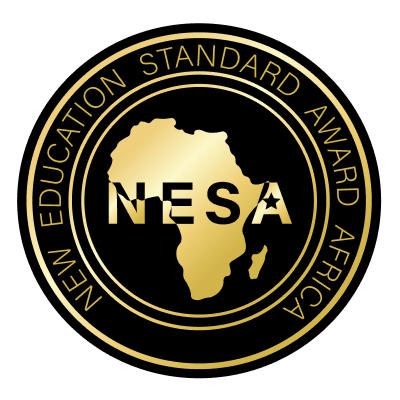NESA-Africa 2025–2027 Board of Advisors
Platform: NESA-Africa — Week of Impact & Pan-African Education Awards
Dates/City: 13–18 December 2025 • Lagos, Nigeria
Purpose: Provide independent guidance on governance, methodology (SDG4/Agenda 2063 alignment), programs, and partnerships across Africa and the Diaspora.
Why this Board Exists
Protect integrity
Keep judging independent and transparent (published criteria, weightings, COI/recusal).
Raise standards
Align categories and indicators to classroom outcomes, skills/TVET, inclusion, gender equity, and digital learning.
Guide programs
Shape Teacher Innovation Micro-Grants, Library/Digital Corners, STEM for Girls, and Diaspora Town Halls (impact, not awards).
Convene the ecosystem
Connect ministries, institutions, private sector CSR/ESG, academia, NGOs, creators, and diaspora.
Share knowledge
Co-author light “notes” and briefings that help educators and policymakers act.
Advisory scope is non-fiduciary and non-remunerated. Travel/appearance support may be provided case-by-case.
Advisory Categories & Seat Map (2025–2027)
We balance expertise, region, gender, and inclusion. Target sizes are indicative; final composition is curated.
Honorary Advisory & Governance Council (10–16)
Continental statespersons, former ministers/VCs, eminent educators; provides governance signals and public trust.
Technical & Methodology Panel (8–12)
SDG4/Agenda 2063 alignment, ethics, inclusion, measurement. (UNESCO/IICBA and peer institutions as technical advisers/observers.)
Knowledge & Development Partners Circle (6–10)
Bank/DFI and research partners (e.g., skills/TVET, digital learning, labor insights). (AfDB-type roles as “knowledge partners/observers”.)
Sector & Program Panels (5–9 each)
EdTech & Digital Learning • STEM for Girls & Youth Skills • Libraries, Reading & Open Knowledge • Inclusive/Special Needs Education • Sustainability & Climate-Smart Schools • Media in Education & Literacy • TVET, Employability & Entrepreneurship
Regional Hubs (5 regions × 4–6 each)
North • West • Central • East • Southern Africa — ensure continental balance and context.
Diaspora Council (AU Sixth Region) (8–12)
US/Canada • UK/Europe • Middle East • Asia-Pacific — bridge communities, scholarships, and town halls.
Youth & Teacher Advisory Forum (10–15)
Teachers, student/youth leaders, union/association reps — voice of classroom realities.
Civil Society & Philanthropy Circle (6–10)
Foundations, NGOs, community networks — equity, accountability, and field evidence.
Private Sector CSR/ESG Circle (8–12)
Corporate CSR/ESG strategists. Strict firewall: no role in judging, nominations, or outcomes.
Media & Creators Advisory (6–10)
Editors, radio/TV anchors, creators — literacy, safety, and reach (with brand/ethics guardrails).
Note: Advisors help shape categories, methodology, and programs; they do not adjudicate winners and must declare/recuse from any conflicts.
What Advisors Do (Responsibilities)
Review and comment on criteria, weights, and category definitions once per year.
Advise on program design (micro-grants, libraries, STEM kits, diaspora town halls).
Join two plenary calls per year (+ optional working-group sprints).
Provide short quotes/forewords for governance pages or knowledge notes.
Participate in one micro-session during the Week of Impact (optional, non-awards).
Uphold the firewall, COI, privacy, and brand-use rules at all times.
Time commitment: ~12–18 hours/year (virtual first; on-site appearances optional).
Term: 24 months, 2025–2027, renewable by mutual consent.
Safeguards (Apply to Every Advisor)
Independence
Advisors do not sit on judging panels and do not vote on nominees/winners.
COI & Recusal
Declare affiliations; recuse from topics with conflicts.
Firewall Language
“Funding does not influence nominations or winners.”
Privacy & Ethics
NDPR/GDPR, data minimization, consent-led communications.
Brand Use
Prior written approval; revocation clause for misuse.
Anti-Bribery / AML / Sanctions
Zero tolerance; gifts/hospitality cap per policy.
Benefits & Recognition
Public listing on NESA-Africa Advisors page (photo, bio, region/sector).
Recognition during Week of Impact; certificate of service.
Co-author/credit on select knowledge notes and policy micro-sessions.
Priority briefings on rubric updates and data insights.
Invitation to regional convenings and diaspora town halls.
How to Join (Three Paths)
Path A — Institutional Nomination
By AU bodies/UN agencies/DFIs, ministries, embassies, universities, professional bodies, foundations.
Path B — Peer Nomination
By two senior referees (from different institutions) with relevant track records.
Path C — Open Expression of Interest (EOI)
Submit via the form below; we consider on rolling basis to maintain balance.
Selection Criteria
- Expertise fit
- Regional/gender/inclusion balance
- Integrity record
- Time commitment
- Ability to add public value (without conflicts)
2025–2027 Timelines
- Wave 1 confirmations: by 31 Oct 2025
- Wave 2 additions: Jan–Mar 2026 (balance & gaps)
- Annual refresh: Q4 2026
Apply / Nominate
Step 1 — Submit the Advisor EOI/Nomination Form
- Full name, title, organization, country/region
- Category applying for (see list above)
- 150-word bio + headshot
- 1-page CV (or LinkedIn)
- Two references (names/emails) — for peer nominations
- COI declaration (affiliations, current grants/contracts)
- Consent to privacy & communications policy
Step 2 — Vetting
- Light due diligence (credentials, references, adverse media/PEP/sanctions check).
Step 3 — Invitation & Charter
- If selected, you’ll receive an Advisor Invitation Letter, the Advisory Charter, and annual call dates.
Step 4 — Onboarding
- Add bio/photo to the Advisors page, join the next plenary, and opt into a working group.
2025–2027 Calendar (at a glance)
Oct/Nov 2025
Plenary #1
Governance/rubric sign-off, working-group sprints
Dec 2025
Week of Impact
Optional micro-sessions (non-awards)
Q2 2026
Plenary #2
Mid-cycle review; knowledge note
Q4 2026
Plenary #3
Next-year criteria tune-up
Q2 2027
Plenary #4
Impact reflection; renewal nominations
